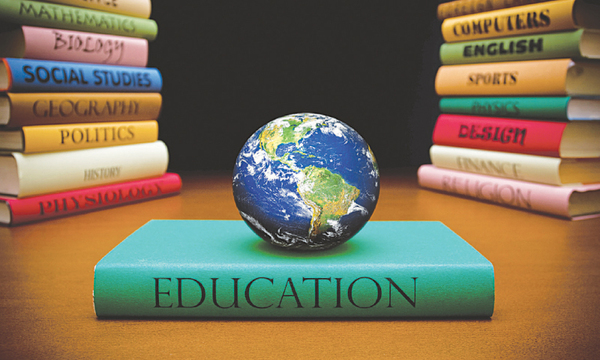A Tapestry of Tongues
Pakistan boasts a rich linguistic tapestry, with over 70 languages spoken across its diverse regions. However, the current education system primarily focuses on Urdu and English, neglecting the potential of students' mother tongues. Promoting multilingual education (MLE) in Pakistan emerges as a powerful tool for unlocking academic success, fostering cultural appreciation, and empowering students to thrive in a globalized world.
Building Strong Foundations: Learning in Your Mother Tongue
MLE emphasizes utilizing a child's mother tongue as the primary medium of instruction in early education. This approach allows children to build a strong foundation in literacy and critical thinking skills. Studies consistently show that students who learn in their mother tongue perform better academically and develop a deeper understanding of concepts.
Imagine a young Balochi girl in Gwadar struggling to grasp complex scientific concepts explained in English. MLE would allow her to learn these concepts in her native language, fostering a love for learning and boosting her confidence to excel academically.
Beyond Borders: The Advantages of Multilingualism
The benefits of MLE extend far beyond early education. Multilingualism equips students with the ability to communicate effectively with a wider range of people. In today's interconnected world, fluency in multiple languages opens doors to international education opportunities, better job prospects, and a deeper understanding of diverse cultures.
Think about a young man in Lahore aspiring to study engineering abroad. Proficiency in English, alongside his native Punjabi, would significantly enhance his chances of acceptance into a prestigious university and navigating academic life in a foreign country.
Cultural Identity and Heritage: Celebrating Linguistic Diversity
MLE fosters a sense of cultural identity and appreciation for Pakistan's rich linguistic heritage. By promoting mother tongue languages in schools, MLE celebrates the diversity that defines Pakistan and empowers students to connect with their cultural roots.
Imagine a classroom in Karachi where students from various ethnicities learn about historical figures and literary works in their respective mother tongues. This environment fosters inclusivity, celebrates linguistic diversity, and instills a sense of pride in Pakistan's unique cultural tapestry.
Challenges and Considerations: Overcoming Obstacles to MLE
Implementing a successful MLE system in Pakistan requires careful consideration of various challenges. Developing appropriate curriculum materials, training teachers proficient in multiple languages, and addressing the socio-economic divide that limits access to quality MLE are crucial steps.
Imagine a dedicated Sindhi teacher in Sukkur struggling to find suitable resources to teach mathematics in his native language. Increased government investment in creating these resources and providing training programs for teachers in MLE methodologies is essential for successful implementation.
Strategies for Success: Building a Framework for MLE
Building a robust MLE framework in Pakistan requires a multi-pronged approach. Government collaboration with education experts, language specialists, and educators is vital. Additionally, leveraging technology to develop online learning modules and digital resources in various languages can bridge geographical divides and enhance accessibility.
Read More: Explore successful MLE models implemented in other multilingual countries for valuable insights and best practices.
The Role of Parents and Tutors: Supporting the MLE Journey
While systemic changes are underway, parents and tutors can actively support their children's multilingual learning journey. Creating a stimulating home environment that exposes children to their mother tongue through books, music, and conversations is essential. Tutors affiliated with reputable tutor academies can provide personalized instruction and language learning support in specific languages.
Imagine a student in Islamabad facing difficulties with written Urdu grammar. A qualified tutor specializing in Urdu language can offer targeted instruction and practice exercises, helping the student master the complexities of the language.
A Brighter Multilingual Future: Embracing the Power of Languages
Promoting MLE in Pakistan is an investment in its future. By nurturing the inherent linguistic diversity of the country, MLE can empower students to excel academically, become global citizens, and celebrate the rich tapestry of languages that define Pakistan's cultural heritage. As Pakistan moves forward, creating a space for all languages to flourish will pave the way for a brighter future where every child can thrive in their mother tongue and embrace the world with the power of multilingualism.




Comments